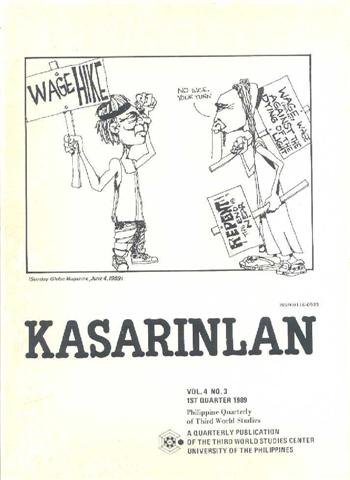Beyond Patron-Client Relation: Warlordism and Local Politics in the Philippines
Abstract
Political scientists have for years used the framework of patron-client relations to describe both the structure and the transformation of rural politics in the Philippines. Scholars writing in the 1960s described rural Philippine society as "integrated" into the national polity through a "pyramid" of patron-client ties, while their successors in the 1970s attributed political instability and the demise of formal parliamentary democracy to the "breakdown" of patron-client relations. However, the patron-client paradigm fails to account adequately for both change and continuity in Philippine rural politics. Only a mode of analysis that factors in the role of coercion and the autonomy of localities from central control will explain both the persistence of rural elite monopolies on local political power and the emergence of a strong revolutionary movement in the countryside. Evidence abounds that a regime which might be described as "petty sultanism" -- akin to caciquismo in Latin America, the mafia in Sicily, and "warlordism" in Republican China -- structures contemporary local politics in the archipelago. The importance of this phenomenon is obvious when it is recalled that scholars have identified the survival of "neofeudal" agrarian elites as an important obstacle in the paths to economic development, state formation, and democracy throughout the modern world.
Published
2008-07-18
Issue
Section
Features
By submitting a manuscript, the authors agree that the exclusive rights to reproduce and distribute the article have been given to the Third World Studies Center.



